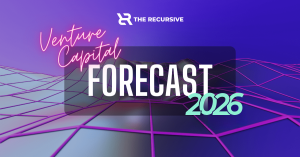The global financial landscape is undergoing a radical shift, and the Central and Eastern European (CEE) region is leading the charge. The CEE startup ecosystem is valued at over €243 billion as of Q1 2025, according to Dealroom, with Fintech consistently ranking among the top three most-funded sectors. In 2024, CEE companies raised over €2.3 billion in venture capital, demonstrating a dynamic environment where nimble startups are challenging incumbents and turning local expertise into global products. This rapid growth, driven by a highly skilled tech talent pool, positions CEE as a critical barometer for the future of finance.
Here are the 10 most relevant Fintech trends set to define the market in 2025, with a spotlight on the innovative CEE companies driving them forward.
1. Embedded finance and banking-as-a-service (BaaS)
This is probably the biggest game-changer. Instead of separate banking apps, financial services are now being built directly into the apps we use every day, making transactions feel effortless. Think about booking a train ticket and being offered insurance right there, or an e-commerce platform offering “buy now, pay later” options without ever leaving the site.
BaaS is the engine behind this, providing the tools for any company to become a financial provider. A company like Flowpay in Prague is a great example for that. They go beyond credit scores by using AI to analyze a business’s real-time operational data (like sales and inventory), allowing them to offer instant, data-driven revenue-based financing directly within the platform.
2. AI and hyper-personalization
AI is moving beyond chatbots and into a whole new level of personalization. It’s about giving us financial services that feel like they were made just for us. Your banking app could use AI to analyze your spending habits and offer proactive advice on how to save more effectively, or it could detect potential fraud in real-time based on your unique behavior. This is making financial management less of a chore and more of a smart, intuitive experience.
One example is Nethone from Poland– this company uses machine learning to understand and screen online users. Their solution goes beyond just transaction data, analyzing user behavior like keystrokes and mouse movements to understand the user’s intent.
3. Sustainable and ESG-focused fintech
As a generation, we’re more concerned than ever about the impact of our money. Fintech is making it easier to align our financial decisions with our values. There are now apps that track your carbon footprint with every purchase, or platforms that make it simple to invest only in companies with strong ESG (Environmental, Social, and Governance) scores. It’s a powerful way to put your money to work for the causes you believe in.
4. The growth of open banking
Open banking is all about giving consumers more control over their financial data. This trend is expanding into what’s being called Open Finance, where you can securely share your data with third-party apps for a broader range of services. This is a huge deal for competition, because it allows innovative startups to create new products that can compete with the big banks. It’s helping to make the whole financial ecosystem more connected and consumer-centric.
5. RegTech for compliance
With all this innovation, new regulations are a constant. That’s where Regulatory Technology (RegTech) comes in. These are smart solutions that use AI and automation to help financial companies stay on the right side of the law. Things like Anti-Money Laundering (AML) and Know Your Customer (KYC) checks are being automated, which not only makes them more accurate but also makes the process faster and smoother for us as users.
The need for streamlined compliance is driving growth for CEE-based RegTech firms, with companies like Fonoa (Croatian-founded) specializing in global tax automation. Fonoa allows digital businesses and marketplaces to instantly calculate and report indirect taxes (like VAT and GST) across over 190 jurisdictions.
6. The evolution of decentralized finance (DeFi)
DeFi, which uses blockchain, is maturing from a fringe concept into something that’s starting to find its place in the mainstream. We’re seeing more solutions that combine the decentralized transparency of blockchain with the security and regulatory compliance of traditional finance. particularly through regulated asset tokenization. Big global names driving this are financial giants using permissioned DLT networks like J.P. Morgan’s Onyx, and technology providers like R3 Corda, built specifically for regulated finance. This could open up new ways to handle things like peer-to-peer lending and asset management.
7. The security shift to biometrics
Say goodbye to remembering dozens of passwords. Biometric authentication is getting more sophisticated, making our accounts more secure and easier to access. We’re talking about more than just fingerprints or facial recognition. Newer systems can analyze multiple data points, like how you type or swipe on your phone, to verify your identity. PayByFace from Romania is a startup created a facial recognition payment system that lets customers pay with just their face. They’ve partnered with major banks and payment networks to test and implement their technology.
8. Central bank digital currencies (CBDCs)
This might sound a bit complex, but it’s a major trend. Central banks across the globe, including the European Central Bank with its digital euro project, are exploring creating their own digital currencies. These are different from cryptocurrencies because they’re controlled by a central authority, but they could still revolutionize payment systems by making them more efficient and secure.
9. A surge in WealthTech
More people, especially our generation, want to get into investing, but the old-school ways seem intimidating. WealthTech is all about democratizing that process. We’re seeing a rise in robo-advisors and user-friendly apps that let you start investing with very little money. A company like Greek Wealthyhood, which is active in the CEE region, is a great example of this, making it super simple to get started with crypto investments.
10. Making finance accessible for everyone
This trend is all about using fintech to ensure that financial services are available to everyone, no matter their income level or where they live. For a lot of people traditional banks are just not an option. Maybe they don’t have enough money for an account, or the bank is too far away.
Fintech companies are using mobile-first solutions to get around these barriers. They offer low-cost or no-fee accounts, digital wallets for easy payments, and micro-lending options that don’t require a traditional credit history. They’re basically using technology to reach people that the old system left behind. This is a huge deal because when people can safely save, send, and receive money, it empowers them to start a business, manage their finances better, and improve their lives. It’s a key part of making society fairer and more equitable.








